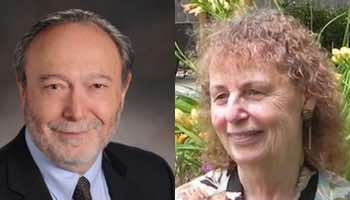 When our body senses an uninvited intrusion, especially to the organs below our diaphragm, our capacity to feel safe is functionally disrupted. This may occur independent of intent and is experienced by both patients receiving life saving medical interventions as well as survivors of sexual abuse. The work of Stephen Porges illuminates how our body system of surveillance, through the sensory pathways of our autonomic nervous system, disrupts our sense of safety. This loss of feeling safe disrupts our ability to co-regulate with others and impacts on our mental and physical health.
When our body senses an uninvited intrusion, especially to the organs below our diaphragm, our capacity to feel safe is functionally disrupted. This may occur independent of intent and is experienced by both patients receiving life saving medical interventions as well as survivors of sexual abuse. The work of Stephen Porges illuminates how our body system of surveillance, through the sensory pathways of our autonomic nervous system, disrupts our sense of safety. This loss of feeling safe disrupts our ability to co-regulate with others and impacts on our mental and physical health.
Our interpersonal relationships play a central role in the re-establishment of safety when there has been such injury. One foundation for offering this support is the capacity to be present. In her work, Bonnie Badenoch explores the neurobiological roots of truly being with others through the cultivation of nonjudgmental, agendaless presence. Far from leaving us in a passive role, this kind of deep listening allows us to follow others, offering what seems to be called for by what is emerging in the other person. With our children, partners, and friends, as well as our clients, we can become people who foster the inherent health waiting within the embedded trauma
In the long term, the human need to be social supplants other survival needs beyond the most primitive needs of oxygen, food, water, and physical safety. Social isolation is a powerful disruptor of human behavior and physiological health. In the clinical domain of traumatology, isolation, whether physical or psychological, is conceptualized as neglect. In addition, other forms of social marginalization (such as bullying) are interpreted by our nervous system similarly to isolation. Isolation triggers feelings of despair that are captured metaphorically by a nervous system signaling its viscera to initially become aggressive (i.e., fight/flight behaviors) and then subsequently to shut down and appear to be dormant. These responses and this sequence are encoded in our genes.
Dr Stephen W. Porges is Distinguished University Scientist at Indiana University, where he directs the Trauma Research Center within the Kinsey Institute. He holds the position of Professor of Psychiatry at the University of North Carolina and Professor Emeritus at the University of Illinois at Chicago where he directed the Brain-Body Centre. Dr. Porges is also Professor Emeritus at the University of Maryland where served as Chair of the Department of Human Development and Director of the Institute for Child Study. He is a former president of the Society for Psychophysiological Research and also of the Federation of Behavioural, Psychological, and Cognitive Sciences. He is a former recipient of a National Institute of Mental Health Research Scientist Development Award. He has published more than 250 peer‐reviewed scientific papers across several disciplines including anaesthesiology, critical care medicine, ergonomics, exercise physiology, gerontology, neurology, obstetrics, paediatrics, psychiatry, psychology, space medicine, and substance abuse. In 1994 he proposed the Polyvagal Theory, a theory that links the evolution of the vertebrate autonomic nervous system to the emergence of social behaviour. The theory provides insights into the mechanisms mediating symptoms observed in several behavioural, psychiatric, and physical disorders. The theory has stimulated research and treatments that emphasize the importance of physiological state and behavioural regulation in the expression of several psychiatric disorders and provides a theoretical perspective to study and to treat stress and trauma. He is the author of The Polyvagal Theory: Neurophysiological foundations of Emotions, Attachment, Communication, and Self-regulation (Norton, 2011), The Pocket Guide to the Polyvagal Theory: The transformative power of feeling safe, (Norton, 2017), and co-editor of Clinical Applications of the Polyvagal Theory: The emergence of Polyvagal-informed therapies (Norton, 2018).
Bonnie Badenoch, PhD, LMFT, is an in-the-trenches therapist, supervisor, teacher and author who has spent more than ten years integrating the discoveries of neuroscience into the art of therapy. She co-founded the nonprofit agency, Nurturing the Heart with the Brain in Mind (Portland, OR) in 2008, and was founder and former executive director of the Center for Hope and Healing (Irvine, CA) for 17 years. Her work as a therapist has focused on helping trauma survivors and those with significant attachment wounds reshape their neural landscape to support a life of meaning and resilience. Bonnie speaks internationally about applying IPNB principles both personally and professionally. She takes particular joy in offering longer term immersion training for therapists and others in the healthcare professions at her home in the Pacific Northwest because these experiences support personal transformation through embodiment of the principles of interpersonal neurobiology. Her conviction that wisdom about the relational brain can transform human experience led to the publication of Being a Brain-Wise Therapist: A Practical Guide to Interpersonal Neurobiology in the Norton Interpersonal Neurobiology Series in 2008 and The Brain-Savvy Therapist’s Workbook in 2011. In 2013, she and Susan Gantt co-edited and contributed to a new book, The Interpersonal Neurobiology of Group Psychotherapy and Group Process. Her newest book, The Heart of Trauma: Healing the Embodied Brain in the Context of Relationships will be released November 28, 2017 and is available for preorder. Therapists are saying that these books fill the gap between science and practice with clarity, compassion, and heart.

